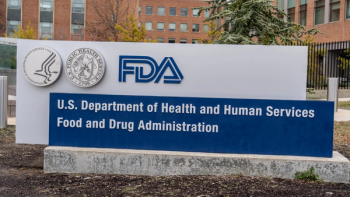
Biden Infrastructure Package Would Boost R&D–and Corporate Taxes
New American Jobs Plan set to be funded by corporate taxes will affect biopharma industry.
The White House unveiled the massive
The largest investments provide funds to modernize transportation infrastructure, expand affordable housing, bolster utilities, and expand home and community-based care for the elderly and disabled. Within these initiatives are multiple programs related to R&D and technology, such as funds for electric vehicle development, to expand high-speed broadband and to improve the power grid. An emphasis on boosting support for research and development aims to make American industry more competitive with China and other advanced nations, while also creating more high-wage jobs and maintaining American global leadership in manufacturing and economic development.
A number of innovation and R&D programs fall under the $280 billion allotted for jobs creation and expanded research infrastructure to support the “technologies of the future” important to American competitiveness “on the global stage.” There’s $50 billion for the National Science Foundation to collaborate and build on high-tech programs in fields like biotechnology, semiconductors, advanced computing, and advanced energy technologies. There’s another $35 billion to address the climate crisis and advance clean energy technology. Efforts to retool and revitalize American manufacturing include a new office to monitor domestic industrial capacity and support production of critical goods such as semiconductors. And there’s more than $50 billion available for investment in US manufacturers and a plan for “regional innovation hubs” to spread new opportunities across the country.
Advancing American manufacturing also supports activities to “protect Americans from future pandemics.” That initiative provides $30 billion to invest in medical countermeasures manufacturing, shore up the strategic national stockpile, accelerate the timeline for R&D and testing of new therapeutics, and train personnel for epidemic and pandemic response. One notable proposal is to accelerate the nation’s ability to respond quickly to a medical emergency by developing prototype vaccines through Phase I and II trials. Biopharma manufacturing also would gain from investment in new technologies for rapid scale up of vaccine production, in expanded emergency production capacity and enhanced US infrastructure for biopreparedness, and in greater production onshore of active pharmaceutical ingredients.
Corporations foot the bill
The main source of funding for the massive program is to boost the corporate tax rate to 28%, up from the current 21% that was part of a major Trump administration tax cut. That’s still lower than the 35% corporate tax rate before the change in 2017, but still projected to provide up to $3 trillion to pay for the jobs and infrastructure package. President Biden explained that the plan aims to end “the race to the bottom on corporate tax rates” around the world. And reformers maintain that corporations actually pay only about a 16% tax rate, largely due to incentives for shifting production and jobs overseas.
Biden aims to fix that by revising current policies that exempt from US taxes most foreign assets and higher taxes paid overseas. A range of policy changes would discourage foreign based companies from shifting profits from US operations to avoid taxes, while also discouraging foreign takeovers of US firms. The global operations of most biopharma companies means that any changes in the international tax arena will have a significant impact on industry operations and business decisions.
Republicans already are loudly opposing the tax changes, and the package is slated to undergo significant changes to gain sufficient support for enactment.
Newsletter
Lead with insight with the Pharmaceutical Executive newsletter, featuring strategic analysis, leadership trends, and market intelligence for biopharma decision-makers.



